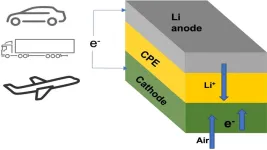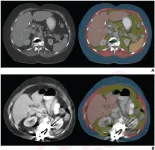Journal in Which the Study was Published: Cancer Discovery, a journal of the American Association for Cancer Research (AACR)
Author: Joe-Elie Salem, MD, PhD, a professor at Sorbonne Université, and executive assistant director of one of France’s Clinical Investigation Centers focused on cardio-metabolism
Background: Immune checkpoint inhibitors comprise a class of immunotherapeutics that release the natural brakes on certain immune cells, making them more efficient at killing cancer cells. In rare cases, this leads to an overactive immune system that can attack muscle cells, including those in the heart.
“Immunotherapy wakes up the immune system, but it sometimes wakes up autoreactive T cells that destroy your own body,” Salem said. “The heart is at the top of the list of organs you don’t want to harm.”
This type of muscle damage is known as myotoxicity, or myocarditis when it involves the heart muscle. Patients undergoing ICI treatment are routinely monitored for myocarditis, which occurs in approximately 1 percent of patients receiving ICI therapy. If signs of myocarditis develop, patients are typically given high-dose corticosteroids. This relatively nonspecific strategy can be too little treatment for some patients and too much treatment for others, Salem said, leading to a mortality rate between 20 and 60 percent.
Salem and colleagues hypothesized that therapies directly targeting the autoreactive T cells may improve survival. Abatacept, approved for the treatment of rheumatoid arthritis, prevents macrophages from activating T cells and is sometimes used at low doses to help treat ICI-related myocarditis. Ruxolitinib inhibits the immune-stimulatory proteins JAK1 and JAK2, thereby also decreasing T-cell activation.
While abatacept can take several weeks to reach optimal efficacy, making it a durable, long-lasting treatment, ruxolitinib has a short half-life and begins working almost immediately. Salem and colleagues hypothesized that the two could form a powerful combination in patients with severe myotoxicity.
How the Study was Conducted: Forty consecutive cancer patients admitted to Assistance Publique–Hôpitaux de Paris with confirmed ICI-related myocarditis were evaluated in this study. The first 10 were treated according to the standard of care, including high-dose corticosteroids and, in the event of resistance, other immune suppressants as determined by the care team. The subsequent 30 patients were treated according to their disease severity and the extent of myotoxicity.
Twenty-six eligible patients in the experimental group received low-dose corticosteroids and three infusions of high-dose (20 mg/kg) abatacept. Twenty-two of the patients in this group had severe (grade 3+) myocarditis, and 17 of them were given ruxolitinib in addition to abatacept.
All patients in the experimental treatment group were regularly monitored for the spread of myotoxicity to the respiratory muscles to determine eligibility for a ventilator, if necessary. Ten patients met the criteria for elective ventilation, and eight were placed on a ventilator.
Results: The rate of myotoxicity-related mortality was 60 percent among patients in the standard-of-care group and 3.3 percent among patients in the experimental treatment group; the one myotoxicity-related death in the experimental treatment group occurred in a patient who refused elective ventilation.
For patients in the standard-of-care group, the overall survival rate was 40 percent at 3 months and 20 percent at 6 months post-treatment. For patients in the experimental treatment group, the overall survival rate was 77 percent at 3 months and 70 percent at 6 months post-treatment.
Author’s Comments: “While this is not a randomized clinical trial, the significant improvement in outcomes when patients are treated with targeted therapies is very suggestive that this regimen is helpful,” Salem said.
He further emphasized that the personalized medicine aspect of this new regimen to manage myotoxicity is equally as important as the treatments themselves.
“We have to acknowledge that not all patients need the whole package; you may need all of it for the severe cases and only some of it for intermediate cases, or even none of it for persistently asymptomatic cases,” Salem said. “Even if it’s debated in the literature whether we should screen for and monitor the severity of every patient, for me, there’s no question.”
Study Limitations: Limitations of this study include a small sample size, which prevented subgroup analyses based on patient demographics and the type of ICI treatment received. This study was not a randomized clinical trial.
Funding & Disclosures: Funding for this study was provided by the Clinical Investigation Center in Paris. Salem has consulted or served on advisory boards for Bristol Myers Squibb, Novartis, Banook Group, AstraZeneca, and BeiGene and holds patents related to the treatment of ICI-related immune adverse events.
# # #
Follow us: Cancer Research Catalyst; Twitter; and Facebook
For AACR information, visit Fast Facts.
About the American Association for Cancer Research
Founded in 1907, the American Association for Cancer Research (AACR) is the world’s first and largest professional organization dedicated to advancing cancer research and its mission to prevent and cure cancer. AACR membership includes more than 54,000 laboratory, translational, and clinical researchers; population scientists; other health care professionals; and patient advocates residing in 130 countries and territories around the world. Presently, 32% of members live outside the United States and 22% of AACR’s international members are located in countries with emerging economies. The AACR marshals the full spectrum of expertise of the cancer community to accelerate progress in the prevention, diagnosis, and treatment of cancer by annually convening more than 30 conferences and educational workshops, the largest of which is the AACR Annual Meeting. In addition, the AACR publishes 10 prestigious, peer-reviewed scientific journals and a magazine for cancer survivors, patients, and their caregivers. The AACR funds meritorious research directly as well as in cooperation with numerous cancer organizations. As the Scientific Partner of Stand Up To Cancer, the AACR provides expert peer review, grants administration, and scientific oversight of team science and individual investigator grants in cancer research that have the potential for near-term patient benefit. The AACR actively communicates with legislators and other policymakers about the value of cancer research and related biomedical science in saving lives from cancer. For more information about the AACR, visit www.AACR.org.
END



